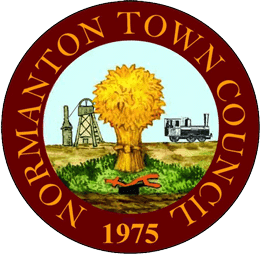
NTC Downloads
Transparency Code
The Local Government Transparency Code 2015 (the code) came into effect on 1 April 2015. The code is issued by the Secretary of State for Communities and Local Government in the exercise of powers under section 2 of the Local Government, Planning and Land Act 1980 and replaces any previous codes issued in relation to authorities in England under those powers.
To view more details, read the documents below.
Payments of £500 and above
All councils are expected to publicise payments over £500 under the Code of Recommended Practice for Local Authorities on Data Transparency.
Publication of these lists forms part of Normanton Town Council’s commitment to being open and transparent with its residents. These will include all individual items the town council purchases, payments made to contractors carrying out work on our behalf and other expenditures incurred in carrying out town council business.
They will exclude payments made to staff, commercially sensitive information and any payments which may reveal personal details about an individual. Therefore, in some cases, we will need to redact information to ensure compliance with the Data Protection Act.
External Audit
Every smaller authority in England with an annual turnover of £6.5 million or less must complete an annual return at the end of each financial year in accordance with proper practices summarising activities. In this annual return, the term ‘smaller authority’ includes a Parish Meeting, a Parish Council, a Town Council and an Internal Drainage Board. Click the link below to read through Normanton Town Council’s external audits.
Annual Reports
Click the link below to view our Annual Reports, which include a Mayor of Normanton’s overview, the works of the Town Council, Normanton Town Council Year End and the Parish Budget Statement.
Community Infrastructure Levy
Community Infrastructure Levy (CIL) is a tariff system that allows local authorities to raise funds from developers undertaking new building projects in their area. There is a national requirement for a ‘meaningful proportion’ of CIL revenue to be passed directly to local communities, and these funds will be transferred to parish and town councils where they exist. In Wakefield, this has been agreed at 15% of the receipt where no neighbourhood plan exists.
CIL Regulations set out that CIL has to be spent to support the development of the relevant area, funding the provision, improvement, replacement, operation or maintenance of infrastructure; OR Anything else concerned with addressing the demands that development places on an area.
CIL Regulations 59C and 59F
Each year, a report must be submitted to Wakefield District Council relating to CIL receipts/expenditures and copies of the report can be accessed here.
